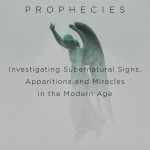Needing to brush up on some things before submitting to an interview tomorrow, I came across this:

Disorientation: How to Go to College Without Losing Your Mind is a collection of essays edited by John Zmirak, and geared toward providing a bit of balance to the university “orientation” that often ends up being more of a “re-orientation,” of a student’s values.
With an introduction by Fr. James Schall, S.J. contributors take on 13 specific “isms” into which students quickly become indoctrinated on the campus; these include Fr. George Rutler on Cynicism, Donna Steichen on Feminism, Peter Kreeft on Progressivism, Fr. John Zuhlsdorf on Modernism, Mark Shea on Americanism and, as they say, “a host of others.”
My own modest contribution is an essay on Sentimentalism.
You are forgiven for wondering, “what is that?” Here is an excerpt:
If 20th century atheism rode in on the backs of totalitarian regimes, the 21st century has delivered unto the world an anti-God, anti-Church movement that fits seamlessly into shallow, postmodern popular culture. Having no need for uprisings and the hardware of destruction, the new fog of faith has crept in on the little cat feet of Sentimentalism and it now sits on its haunches, surveying its splendidly wrought sanctimony.
Sentimentalism is the force of feel-goodism, the means by which we may cast off the conventions of faith and casually dismiss those institutions that refuse to submit to the trending times and morals. The Sentimentalist trusts his feelings over hallowed authority or the urgings of his reason, frequently answering hard religious questions with some noble-sounding phrase like “The God I believe in wouldn’t…” (fill in the blank). What fits in that blank is typically some tenet of traditional faith that isn’t currently fashionable, some moral demand that pop culture considers impossible—and hence, not worth even trying. Thus the Sentimentalist, while believing he follows the inviolate voice of his conscience, is really sniffing after trends, forming his heart according to the sensus fidelium of middlebrow magazines and public radio.
A Sentimentalist cannot reconcile religious convictions—whether rooted in scripture, tradition or cultural practice—that do not correspond with his own considered feelings, which for him are both weighty and principled. Convinced that the people he loves cannot possibly be denied anything they want by a just God, or that the same just God would not permit deformities, illness, war, childhood abuse, or any of the human sufferings common to us all, he will not participate in a Church so fault-riddled and out-of-step with a generous and enlightened generation as…his own.
I go on like that for about 6 pages.
Anyway, that will be out soon, and it may be Now it can also be ordered pre-ordered now, via Amazon.
The collection of essays make for very good reading, even if you’re someone who has been out of college for–ahem–quite some time. We never do stop forming and re-forming ourselves!
UPDATE:
Speaking of Fr. James Schall, above, here is a tribute to the man, via George Weigel.











